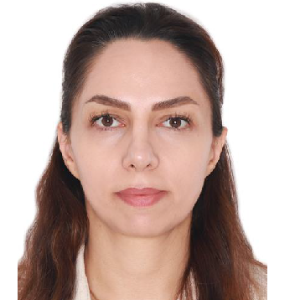Title : The impact of physical guidance on motor learning in children with cerebral palsy
Abstract:
Children with cerebral palsy (CP) have weak physical abilities and their limitations may have an effect on performing everyday motor activities. One of the most important and common debilitating factors in CP is the malfunction in the upper extremities to perform motor skills and there is strong evidence that task-specific training may lead to improve general upper limb function among this population. However, augmented feedback enhances the acquisition and learning of a motor task. Practice conditions may alter the difficulty e.g., the reduced frequency of PG could be more challenging for this population to learn a motor task. So, the purpose of this study was to investigate the effect of physical guidance (PG) on learning a tracking task in children with cerebral palsy (CP). Twenty-five independently ambulant children with spastic hemiplegic CP aged 7-15 years were assigned randomly to five groups. After the pre-test, experimental groups participated in an intervention for eight sessions, 12 trials during each session. The 0% PG group, received no PG; the 25% PG group, received PG for three trials, the 50% PG group, received PG for six trials, the 75% PG group, received PG for nine trials, and the 100% PG group, received PG for all 12 trials. PG consisted of placing the experimenter’s hand around the children's hand guiding them to stay on track and complete the task. Learning was inferred by acquisition and delayed retention tests. The tests involved two blocks of 12 trials of the tracking task without any PG being performed by all participants. They were asked to make the movement as accurate as possible (i.e., fewer errors) and the number of total touches (errors) in 24 trials was calculated as the scores of the tests. The results showed that the higher frequency of PG led to more accurate performance during the practice phase. However, the group that received 75% PG had significantly better performance compared to the other groups, in the retention phase. It is concluded that the optimal frequency of PG played a critical role in learning a tracking task in children with CP and likely this population may benefit from an optimal level of PG to get the appropriate amount of information confirming the challenge point framework (CPF), which state that too much or too little information will retard learning a motor skill. Therefore, an optimum level of PG may help these children to identify appropriate patterns of motor skill using extrinsic information they receive through PG and improve learning by activating the intrinsic feedback mechanisms.
Keywords: Cerebral palsy, challenge point framework, motor learning, physical guidance, tracking task.
Audience Take Away Notes:
- Findings of the present study can help children with spastic hemiplegic cerebral palsy to identify appropriate patterns of motor skill and improve learning new motor tasks by using extrinsic information they receive and activating the intrinsic feedback mechanisms.
- Reduced feedback or information results in a self-regulatory strategy in learning motor skills. Therefore, an increased efficiency in encoding process and improved performance in children with spastic hemiplegic cerebral palsy is expected.
- The results of this study may help physiotherapists and occupational therapists to provide effective therapeutic interventions to improve motor learning in children with spastic hemiplegic cerebral palsy.




